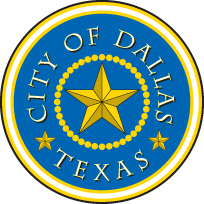


![]()
ONLINE

Leading Growth
for PwC
Editors’ Note
Maribess Miller joined PricewaterhouseCoopers in 1975 and has been a partner since 1984. She is a member of the Executive Committee for the Board of the Greater Dallas Chamber and Chair of its Public Advocacy Committee. Among other affiliations, Miller serves on the boards of the Better Business Bureau, the Dallas Citizen’s Council, the Dallas Symphony Association, the Crow Family Foundation, and the International Women’s Forum. A certified public accountant, Miller graduated cum laude from Texas Christian University with a degree in accounting.
Company Brief
Formed by the 1998 merger of Coopers & Lybrand and Price Waterhouse, PricewaterhouseCoopers (www.pwc.com) is a global professional services firm, employing more than 146,000 people in 150 countries. The worldwide network of PricewaterhouseCoopers (PwC) member firms offers industry-focused assurance, tax, and advisory services.
Where does PwC’s business stand in Dallas? What growth do you predict in that market?
The Dallas market is made up of a very diverse group of sectors: retail and consumer goods, industrial products, energy, technology, health care, and services. Consequently, the economic downturn isn’t as hurtful to us, and we’re leading growth in the firm right now, which is great. It makes for nice meetings with the management committee.
Does the international business world have a thorough understanding of the opportunities in the Dallas market?
Texas tops the list of states with Fortune 500 companies – that’s ahead of New York and California. In a recent talk, Ralph Babb, Comerica’s CEO, said Comerica relocated its Fortune 500 bank to Texas, because it wanted the most diverse economy it could find, and that was north Texas. In addition to a mix of industries and large public companies, north Texas is headquarters to many private and mid-cap companies. Our central location and transportation is a plus.
How important is PwC’s industry expertise to your clients?
Most clients want industry expertise, and our partners are pretty specialized in their sectors. The firm is a giant matrix, and we team our partners across geographies, lines of service, and industries.
How do you demonstrate what makes PwC unique in a competitive market?
It is a challenge. Our studies reveal that four behaviors can differentiate our firm: building trust-based client relationships through which we show our clients that we care about them and put ourselves in their shoes; thinking through issues and teaming with clients to find solutions; regular collaboration; and enhancing value. Those behaviors differentiate us, and we build them into our operations.
How have the well-publicized corporate malfeasance scandals affected PwC’s ability to recruit talent?
We feared it would have a negative impact, but it was really the opposite. There is a big interest in the traditional side of the business, as well as in forensic auditing. The tedious side of accounting doesn’t appeal to everyone; the next generation of talent can put spreadsheets together in their sleep. The tax and advisory business has actually become very attractive to young talent.
How does PwC encourage its employees to become engaged in their communities?
We’ve started focusing our people in areas where we can make a difference, such as the American Heart Association, the March of Dimes, or a particular school. We team up to raise the bar. We also focus on the arts. The Dallas Center for the Performing Arts, which will open in 2009, is amazing. We’ve raised well over $300 million in private money, and 120 contributors – mostly individuals – have each given over $1 million. That’s a lot of wealth. We don’t want to be an inch deep and a mile wide. We want to be deep and help specific organizations, particularly those that relate to kids. In fact, we’re even starting to orient high school students to the accounting profession and educating them about career opportunities.
This industry, particularly at its senior levels, is male-dominated. How has PwC advanced opportunities for women?
For four years in a row, we have been on Working Mother magazine’s list of the top 10 companies to work for. As long as you get your work done, there’s a lot of flexibility. We understand what people need, and it’s not just about working mothers; even people who don’t have children have lives too. Everyone has a laptop or a BlackBerry and can work from a lot of different places. But with specific regard to women, about 50 percent of the people we hire are women, and we have a women’s networking group where women can voice their issues. Across the board, we provide the opportunity for people to have a better quality of life.
You’ve been with PwC for more than 30 years. What makes the firm the kind of place you can stay with through the years?
I’ve never had a dull day. I work with smart people, I am always challenged, and I don’t have just one boss. There are always opportunities to do something different, and I have gone after them. In my whole career, I’ve never felt discriminated against.
What would those who you work with you say about your management style?
They would say I’m optimistic, practical, and people-oriented. You have to enjoy people in this business. I’m the last one to leave a staff outing, because I want to be there – not because it’s my job. I think that makes a difference.
How do you achieve a work/life balance?
My work is an integral part of my life. We work together in teams across the office to balance workloads and we hold each other accountable for maintaining the balance.
After 33 years, you are still passionate about PwC. Will you ever slow down?
PwC partners retire so young – at 60. That will be another chapter for me. I haven’t figured it out yet, but believe me, it will be fun. Life is too short not to have fun.